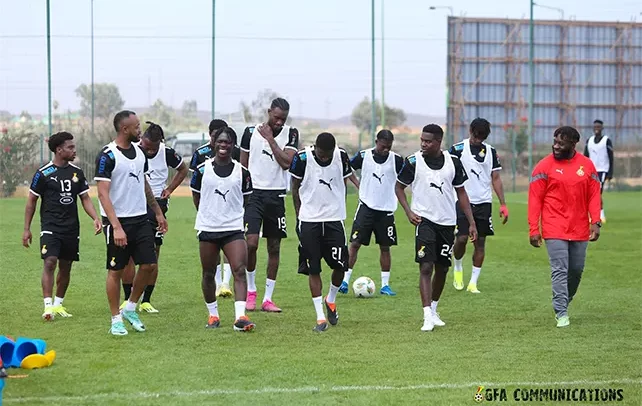
“Fix the culture, and you’ll fix the output.” – Terry Mante
You can’t fix a leaking roof by yelling at the rain. Yet that’s the approach many managers and business leaders take — lamenting over poor employee output, lateness, and a lack of accountability, while ignoring their own role in shaping the very culture they’re complaining about.
Yes, employee indiscipline is real. But poor leadership is just as rampant — and often the root of the problem. If Ghanaian organizations want to see a change in work ethic and productivity, the transformation must begin at the top.
As management guru Peter Drucker famously said, “Culture eats strategy for breakfast.” No amount of planning, targets or fancy business models will work if the workplace culture is toxic, confused, or complacent.
Set clear expectations and stick to them
Employees don’t rise to unclear standards. Many workers underperform not because they are inherently lazy, but because they simply don’t understand what excellence looks like. Instructions are vague, KPIs are missing, and objectives shift weekly.
Managers must develop specific, measurable, and time-bound goals for each role. Every team member should know exactly what success looks like — and how it will be tracked.
More importantly, leaders must stick to their word. If expectations keep changing or if managers show leniency toward certain employees but strictness toward others, they create confusion and resentment. Clarity and consistency are non-negotiable if productivity is the goal.
Reward excellence, not familiarity
In far too many organizations, promotions and perks are tied to loyalty, not results.
Friendship, tribal lines, and who went to school with whom often carry more weight than tangible achievements.
This culture not only demoralizes high-performing employees but also teaches the entire organization that results don’t really matter. Stop promoting your “boys.” Start promoting your performers.
Leaders must break this toxic norm. They must publicly recognize, reward, and promote competence.
Whether through salary adjustments, performance bonuses, or public praise, people should see that hard work and innovation are truly valued. Once employees believe that performance is rewarded, they’ll start performing.
Enforce consequences every time
Discipline is not about shouting in meetings or scolding during appraisals. It’s about consistent consequences. If lateness goes unpunished, it becomes a habit. If poor quality work is ignored, it becomes standard. If absenteeism is tolerated, others will follow suit.
Managers must understand that policies without consequences are just suggestions. Enforcement is what gives rules their teeth.
The most effective leaders are not necessarily authoritarian — but they are firm. They communicate the rules clearly and act when those rules are violated, regardless of who’s involved.
Lead by example
Nothing undercuts discipline faster than hypocrisy. You can’t demand punctuality while consistently arriving late. You can’t preach excellence while tolerating your own mediocrity. You can’t build a reading culture when your own leadership team hasn’t opened a book in years.
The most powerful driver of behavior in any workplace is the behavior of those at the top. Managers must model the standards they expect from others: timeliness, accountability, focus, respect, continuous learning. The energy and tone of a workplace come from its leaders. A careless manager breeds a careless team.
Invest in your people
You cannot harvest where you haven’t sown. Many employees are underperforming simply because they haven’t been trained or empowered properly. The job keeps evolving, but their skill set doesn’t. Mistakes keep repeating, but no one mentors them through it.
Instead of complaining about inefficiency, management should invest in training programs, workshops, regular feedback, and performance coaching. Employees who feel seen, heard, and developed are more likely to grow into the kind of staff every company needs — proactive, skilled, and dependable.
Cutting training budgets in tough times is short-sighted. If anything, it’s in lean seasons that training becomes most crucial.
Build a culture of results, not excuses
Effort is important, but in the business world, results are everything. Too many teams reward people for trying, not for delivering. “At least he tried” becomes a badge of sympathy while deadlines go unmet and customers walk away.
Management must shift the focus from effort to execution. This doesn’t mean ignoring challenges. It means encouraging a solution-oriented mindset.
Weekly meetings should stop revolving around reasons things didn’t happen, and start revolving around what got done, what’s next, and how to eliminate bottlenecks. Make excellence the standard, not the exception. Mediocrity must not feel like a safe zone.
Hire better, fire faster
Let’s face it — some people just don’t want to grow. They undermine team energy, resist feedback, and dodge accountability. Yet managers keep them because “he’s been here for years” or “we don’t want drama.” This is dangerous. One toxic or underperforming staff member can erode the morale of five others.
If someone consistently fails to meet the standard — after support, feedback, and training — it is time to let them go. It’s not cruelty. It’s responsibility. Leadership is about protecting the culture and the vision.
On the other hand, hiring should shift from a focus on paper qualifications to character, attitude, and teachability. Skills can be taught. But you can’t train someone to be honest or dependable.
The hard truth: Leadership drives the culture
If the team is indisciplined, look at the leadership. If employees are disengaged, check the leadership tone. If nothing gets done unless the manager shouts, that’s a systems problem — not just a staff problem. You don’t fix lazy employees by shouting louder — you fix them by leading better. You fix them by setting the tone, building systems, and enforcing standards.
Fix the culture, and you’ll fix the output. Leaders must understand that they are not just overseeing tasks — they are building culture.
A results-driven culture. A respectful culture. A high-performance culture. No motivational posters or slogans will fix low productivity if the work culture is toxic or undisciplined. You don’t fix lazy employees by shouting louder — you fix them by leading better.
——Bottom of Form
About the author
Terry Mante is a thought leader whose expression as an author, corporate trainer, management consultant, and speaker provides challenge and inspiration to add value to organizations and position individuals to function effectively. He is the Principal Consultant of Terry Mante Exchange (TMX). Connect with him on LinkedIn, Facebook, X, Instagram, Threads and TikTok @terrymante and www.terrymante.org.
The post Insight Forge with Terry MANTE: What managers must do about low productivity appeared first on The Business & Financial Times.
Read Full Story














Facebook
Twitter
Pinterest
Instagram
Google+
YouTube
LinkedIn
RSS